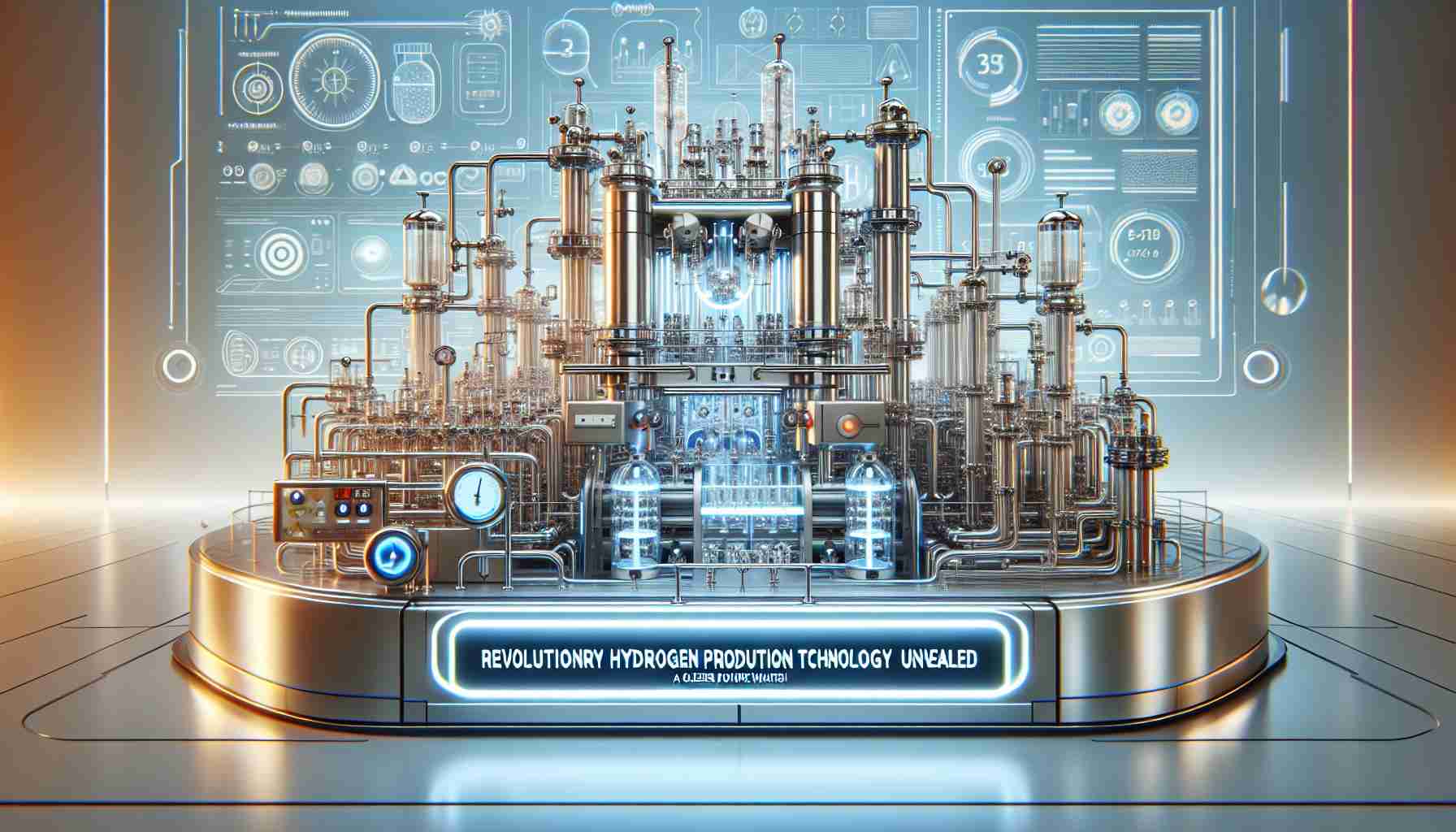Groundbreaking Advances in Hydrogen Production
In a significant development that could reshape the energy landscape, a team of researchers from prestigious institutions like the Max-Planck-Institute and the Weizmann Institute has introduced a new category of electrocatalysts designed to enhance hydrogen production efficiency dramatically. This innovation promises to transform hydrogen into a more accessible and sustainable energy source.
Hydrogen stands out as an eco-friendly energy solution, emitting only water vapor when burned. However, current production methods are often costly and dependent on fossil fuels. The newly developed technology seeks to overcome these obstacles, providing a cleaner and cheaper pathway for hydrogen production.
The researchers established a definitive connection between the strength of spin-orbit coupling in certain materials and their effectiveness as catalysts for hydrogen production. Among the materials evaluated, RhBiS demonstrated particularly impressive performance, with catalytic activity that surpassed traditional methods significantly.
Published in Nature Energy, this research culminated from years of persistent study aimed at enhancing electrocatalysts’ effectiveness and longevity. The innovative catalyst design reduces energy losses during reactions, resulting in nearly a 20% increase in efficiency compared to existing technologies.
This breakthrough has the potential to revolutionize various sectors, including transportation—especially for heavy-duty vehicles and shipping where batteries may not be ideal. Moreover, it could diminish reliance on fossil fuels across multiple industries, strongly supporting global net-zero ambitions. With this progress, the future of clean energy looks promising.
The Broader Impact of Advanced Hydrogen Production Technologies
The recent innovations in hydrogen production not only signal a pivotal shift in energy technology but also carry profound implications for society and the global economy. Hydrogen’s role as a clean energy carrier could redefine transportation systems and reshape urban landscapes. As nations strive to combat climate change, renewable hydrogen could emerge as a cornerstone for decarbonizing sectors traditionally reliant on fossil fuels. The transportation of goods, especially in heavy-duty logistics, might increasingly favor hydrogen fuel cells over battery technologies, potentially lowering greenhouse gas emissions significantly.
Additionally, the economic landscape may be transformed as these new hydrogen production methods become more commercialized. Lower production costs for hydrogen could stimulate job creation in emerging industries focused on clean energy technologies. Regions that invest in this burgeoning sector could see economic revitalization, attracting investments and fostering innovation.
However, the environmental implications must also be considered. While hydrogen itself is clean, the methods of its production still pose risks. If the source of energy for electrolysis remains fossil fuel-dependent, the benefits could be undermined. Therefore, a sustainable approach must be embraced, ensuring that the production processes align with ecological preservation.
In the long term, as hydrogen technologies proliferate, we can anticipate a shift toward more decentralized energy systems. Communities might harness local resources for hydrogen production, boosting energy independence while driving down costs and emissions. As we stand on the brink of this energy renaissance, the decisions made today about hydrogen production will echo far into the future, influencing not just energy markets, but also societal structures and environmental policies worldwide.
A Hydrogen Revolution: Unveiling New Catalysts That Could Transform Energy Production
Groundbreaking Advances in Hydrogen Production
A recent groundbreaking development in hydrogen production has surfaced, spearheaded by esteemed researchers from the Max-Planck-Institute and the Weizmann Institute. They have unveiled a new class of electrocatalysts that could significantly enhance the efficiency of hydrogen production, paving the way for a more sustainable and accessible energy solution.
The Promise of Hydrogen: Eco-Friendly and Sustainable
Hydrogen is recognized as a green energy alternative, primarily because its combustion yields only water vapor. However, traditional hydrogen production methods often come with high costs and a reliance on fossil fuels, posing significant barriers to widespread adoption. The innovative technology introduced by these researchers aims to address these issues, creating a cleaner and more economical process for hydrogen generation.
Key Features of the New Catalysts
One of the pivotal findings of this research is the establishment of a direct correlation between the strength of spin-orbit coupling in specific materials and their efficacy in catalyzing hydrogen production. Among the various materials tested, RhBiS (Rhodium-Bismuth-Sulfide) has exhibited remarkable catalytic performance, outshining conventional methods by a considerable margin.
– Increased Efficiency: The newly designed catalyst achieves nearly a 20% enhancement in efficiency over existing technologies, thanks to its ability to minimize energy losses during chemical reactions.
– Longevity and Stability: The design focus on durability envisions maintaining high catalytic performance over extended periods, making it ideal for industrial applications.
Use Cases and Applications
This revolutionary catalyst has far-reaching applications across diverse sectors, particularly in transportation. It is particularly beneficial for heavy-duty vehicles and maritime shipping, where reliance on battery technology is limited due to weight and energy density considerations. Additionally, integrating this new catalyst could significantly reduce fossil fuel dependence in various industries, aligning with global net-zero emission goals.
Market Trends and Predictions
As investments in clean energy technologies surge, the hydrogen market is poised for exponential growth. Analysts predict that innovations in hydrogen production, like those from the Max-Planck and Weizmann researchers, will become integral to the energy transition, fostering developments in hydrogen fuel cells and infrastructure.
Pros and Cons of the New Technology
Pros:
– Enhanced efficiency and reduced production costs.
– Sustainability, aligning with climate goals.
– Versatile applications across multiple industries.
Cons:
– Initial costs of implementing new technology and infrastructure may be high.
– Limited scalability until widespread industrial adoption is established.
Innovations and Future Insights
The research was published in the prestigious journal Nature Energy, marking an essential step in advancing electrocatalyst technology. As the industry moves toward sustainable hydrogen production, continued innovations in materials science and chemical processes will inevitably shape the future energy landscape.
For more information on this significant advancement in hydrogen production and its implications for sustainable energy, visit Nature.
